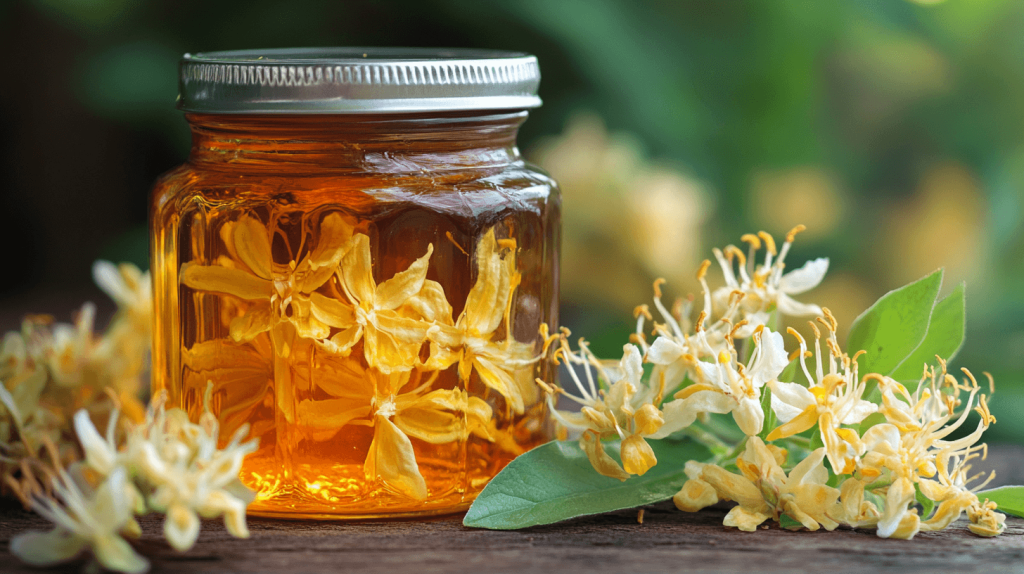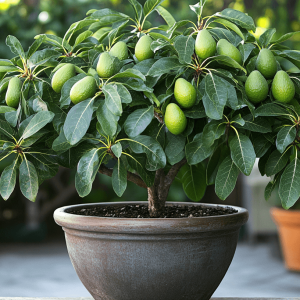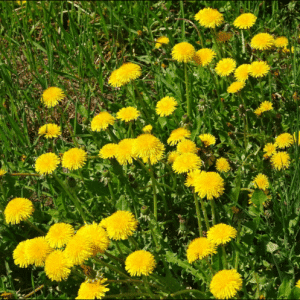
Honeysuckle flowers, scientifically known as Lonicera spp., have been cherished for centuries for their medicinal properties and soothing effects. When infused in honey, these delicate flowers create a potent remedy that offers a range of health benefits, particularly during the cold and flu season. This infusion is not only a natural way to boost your immune system but also a delightful treat that can be easily incorporated into your daily routine.
It is not a tree but rather a shrub or vine. Some honeysuckle species, like Lonicera periclymenum (common honeysuckle), are climbers, while others, like Lonicera tatarica (Tatarian honeysuckle), are more shrub-like
The Medicinal Properties of Honeysuckle Flowers
Honeysuckle flowers are rich in salicylic acid, the natural compound found in aspirin. This makes them highly effective in reducing fever, alleviating pain, and combating inflammation. Additionally, honeysuckle contains flavonoids and essential oils that provide antibacterial and antiviral properties, making it an excellent remedy for respiratory infections, bronchitis, and urinary tract infections. The infusion of honeysuckle flowers in honey combines these benefits with the natural healing properties of honey, creating a powerful and pleasant-tasting treatment.

Health Benefits of Honeysuckle-Infused Honey
- Cold and Flu Relief: The salicylic acid in honeysuckle helps to reduce fever and alleviate the symptoms of colds and flu, such as sore throat and congestion. Combined with honey, it soothes the throat and provides relief from coughing.
- Anti-inflammatory Effects: The anti-inflammatory properties of honeysuckle are particularly beneficial for those suffering from conditions like arthritis, rheumatic pain, and menstrual cramps. Regular consumption of honeysuckle-infused honey can help to ease pain and reduce inflammation.
- Antimicrobial Protection: Honeysuckle is known for its antimicrobial properties, making it an effective natural remedy for fighting off infections. This includes urinary tract infections, where the antibacterial effects can help to cleanse the urinary system.
- Immune System Boost: The combined properties of honeysuckle and honey work together to strengthen the immune system, making the body more resilient to infections and illnesses.
- Skin Health: While not consumed, honeysuckle-infused honey can also be applied topically to treat skin conditions like rashes and minor wounds due to its antiseptic properties.
How to Prepare Honeysuckle-Infused Honey
Making honeysuckle-infused honey at home is simple and requires only a few ingredients and some patience.
- Harvesting the Flowers: Begin by picking fresh honeysuckle buds and young flowers. The best time to harvest is early in the morning when the flowers are at their most potent. Make sure the flowers are clean and free of any pesticides or pollutants.
- Infusing the Flowers: Fill a glass jar with the honeysuckle flowers, packing them in gently without crushing them. Pour high-quality honey over the flowers, making sure they are fully submerged. Use a spoon to press down the flowers and remove any air bubbles that may be trapped. Seal the jar with a tight-fitting lid.
- Maceration Period: Store the jar at room temperature for about 20 days to allow the flowers to infuse into the honey. During this period, the honey will absorb the medicinal properties and flavor of the honeysuckle flowers.
- Storing the Infused Honey: After the maceration period, you can either strain the flowers out of the honey or leave them in, depending on your preference. The infused honey should be stored in a cool, dark place to preserve its potency.

How to Use Honeysuckle-Infused Honey
Honeysuckle-infused honey can be consumed in various ways. A spoonful can be taken directly to soothe a sore throat or to relieve a cough. It can also be stirred into warm (not hot) tea or water for a comforting drink. The honey can be spread on toast, mixed into yogurt, or used as a natural sweetener in recipes.
Where to Find Honeysuckle
Honeysuckle plants are commonly found in temperate regions across North America, Europe, and Asia. They thrive in gardens, woodlands, and hedgerows, particularly during late spring and early summer when they are in full bloom. The flowers are often white, yellow, or pink, with a sweet fragrance that makes them easy to identify.
When foraging for honeysuckle, it is crucial to ensure that you are collecting the correct species, as some honeysuckle varieties can be toxic if consumed. It is always best to consult a knowledgeable forager or botanist if you are unsure. Additionally, if you are harvesting from the wild, make sure the area is free from pollution and pesticides.
Conclusion
Honeysuckle-infused honey is a natural remedy that harnesses the healing power of both honeysuckle flowers and honey. It offers a gentle, yet effective, way to treat common ailments such as colds, flu, and infections, while also providing anti-inflammatory and immune-boosting benefits. With its delightful flavor and numerous health benefits, this infusion is a valuable addition to any natural medicine cabinet. By preparing and storing honeysuckle-infused honey at home, you can enjoy its therapeutic effects throughout the year.






